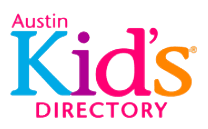5 Activities for Promoting Speech and Language Development
Did you know May is Better Speech and Hearing Month? With that in mind, here are five fun, engaging, and multisensory activities you can try with your child to promote their speech and language development. These activities are flexible. By reading the variations provided, you can adapt each activity to suit your child’s individual interests and needs. Keep in mind that home activities should be more about awareness and stimulation than perfect production. If your child cannot say certain sounds or words on their own, that’s OK. Model the “right” way to say it, see if they will repeat after you, and praise their attempts and hard work. Eventually, your child should become a more independent participant.
1) Speech Basketball: For kids who love to move! Collect beanbags (balled up socks, crumpled paper, etc) and a basket. Take turns throwing a ball into the basket while saying a certain type of word or sentence with each throw (e.g. “Words that start with L”). Give points for baskets made, creative answers, and good tries, too!
Variations: Promote speech articulation skills by playing with words containing sounds that your child has difficulty pronouncing. To increase vocabulary skills, take turns naming items in various categories as you “shoot,” like types of foods, animals, articles of clothing, etc. To improve grammar skills, take turns creating sentences with past tense verbs (“I ran in the park,” “I climbed in the park,” etc) as you “shoot.”
2) Hot Potato: Like simplicity? All this activity requires is a bag full of random stuff! Get a small basket, or bag, and place a few pictures or familiar items in it (small toys, photos, household items, etc). Pass the basket back and forth with your child while playing music or reciting a rhyme (e.g. The Hot Potato Rhyme). When the rhyming or music stops, whoever is holding the basket reaches in, pulls out an item, and names, describes, or creates a story about the item.
Variations: Promote speech articulation skills by including things in the basket that contain sounds that are difficult for your child to pronounce (raisins, a ring, ribbon). Encourage language comprehension skills by including things in the basket that go together (sock/shoe, fork/spoon, quarter/dollar) and matching like items as they’re removed from the basket. Develop expressive language skills by making up a story about the item. Discuss what happened first, next, and last in the story. Don’t forget to give the story a title!
3) Tongue Twisters: Great mouth (and brain) exercise! Recite familiar ones together, or make up your own. Lists are also available online. Tongue twisters may contain sounds that are hard for your child to pronounce, school vocabulary or spelling words, or grammatical classes such as adjectives, for example, or words that end in “-ing.” Get creative! Talkative Tim took 10 tiny ticklish toads to toasty Tijuana!
Variations: Promote phonological awareness by giving your child an egg carton and several dried beans (you could also use pennies, pom poms, etc). Read, recite, or invent some silly tongue twisters. Ask your child to place a bean in one egg compartment every time they hear their target sound (e.g. “Charlie chose a chocolate chair” would target the /ch/ sound and call for 4 beans). To foster social skills, take turns being the tongue twister “inventor” and the listener, and teach your child about good sportsmanship by modeling compliments (“good try!” or “good game!”) during gameplay.
4) I’m Going on a Trip: How about a speech and language-centric version of this classic game, just in time for summer vacation? Play a variation of the “I’m going on a trip” game by only taking items that begin with a certain sound, or belong to a certain class of words (e.g. “things that are blue,” “nouns,” “things that go fast,” etc). Someone starts the game by naming the category, (e.g. “Things that start with B”) and then saying, “I’m going on a trip and I’m taking a bag.” The next player says, “I’m going on a trip, and I’m taking a bag, and a banana!” Continue until someone runs out of ideas, and then start a new category.
Variations: To develop phonological awareness skills, use categories like “Words that rhyme with “bat,” or “things that end with ‘-are.’ Extra points if you can spell the word too! Or, promote grammar skills by trying a category like “words that end with -er” (e.g. marker, cooker, pointer, roller).
5) Make A Word Collage: Great for your budding artist! Create a speech-language collage by going through old magazines, junk mail, or greeting cards, and finding pictures of things that contain sounds or words that are difficult for your child to say. Cut and glue to make a collage. For example, “Grandma Rose’s birthday is coming up. Let’s make her a picture of things that start with “R!”
Variations: Promote vocabulary skills by making a collage with different categories– for example, cut out pictures of foods, and sort them into fruits, vegetables, dairy, meat, etc. Promote expressive language development by making an “adjectives” collage with pictures of things that are ‘big,” “round,” or “cold,” or, making an action collage with pictures of people doing things (“running,” “jumping,” “eating”).
Have concerns about your child’s speech or language skills? A Certified Speech Language Pathologist can help. An SLP can determine if a child’s speech language patterns are normal or abnormal, and provide recommendations and treatment if necessary. Contact Erin M. Kux, SLP at (512) 994-0523 or emkspeech@gmail.com for more information. Let’s talk soon!
